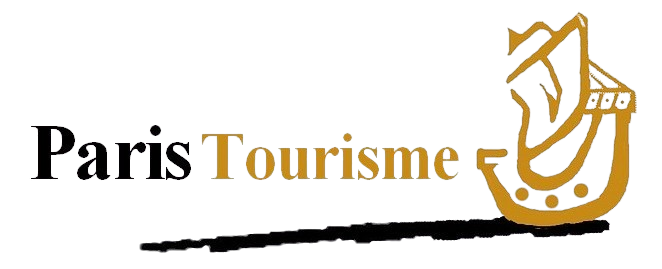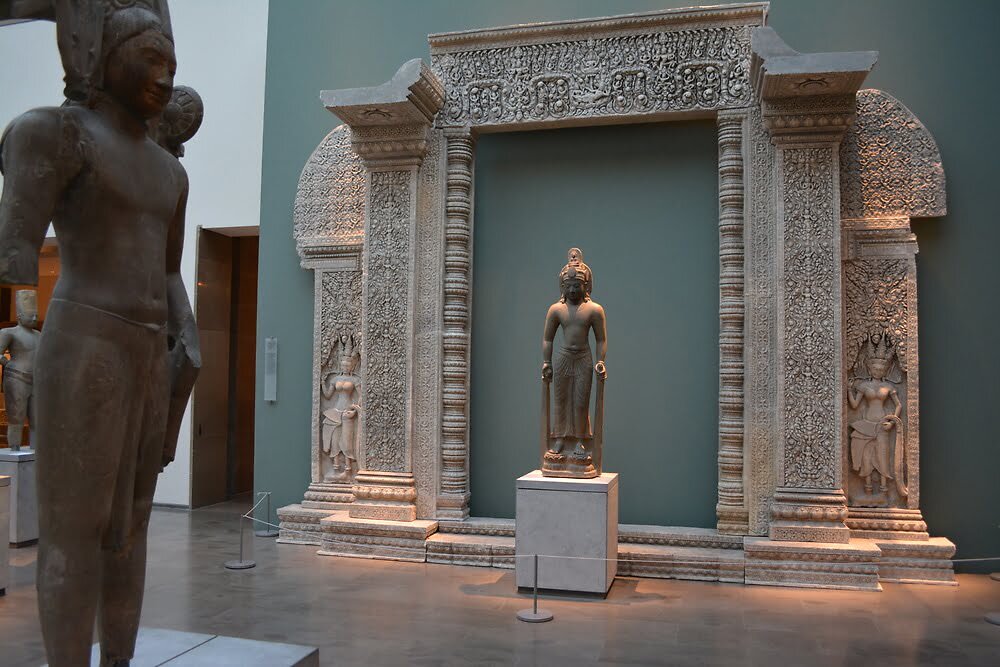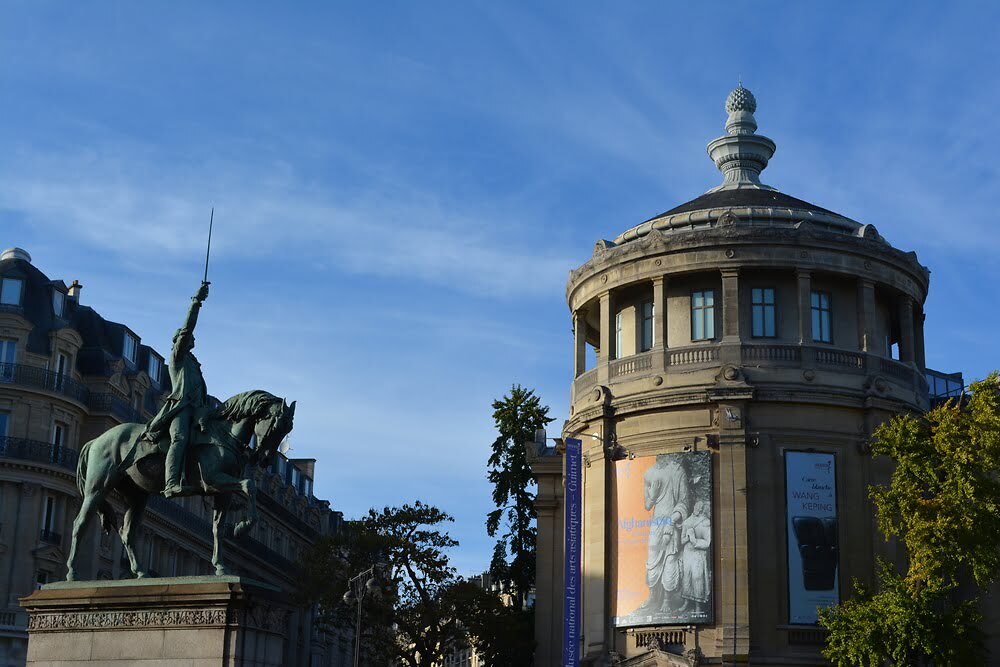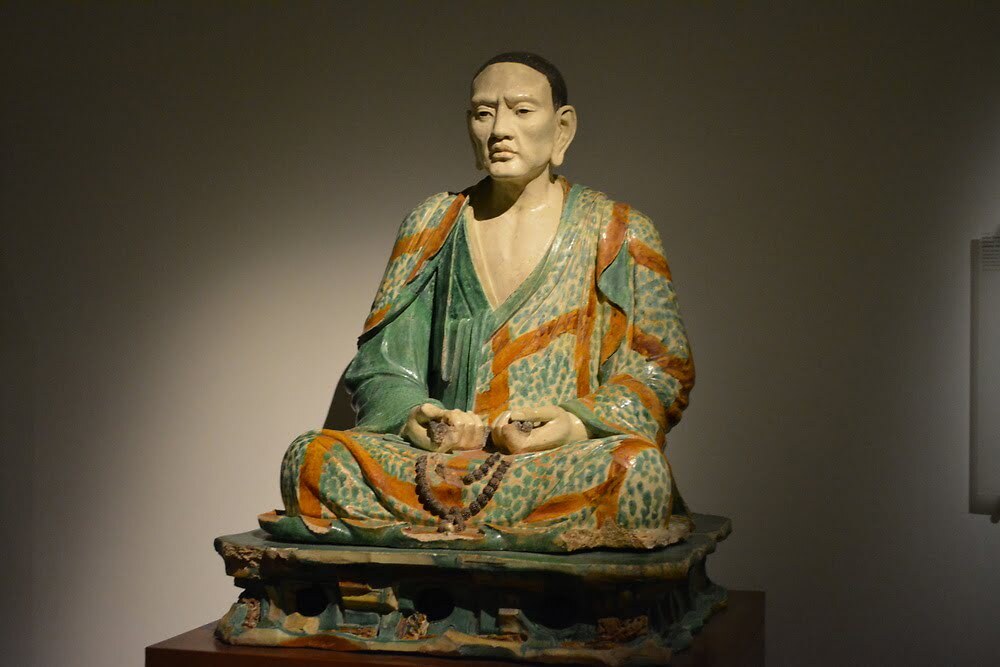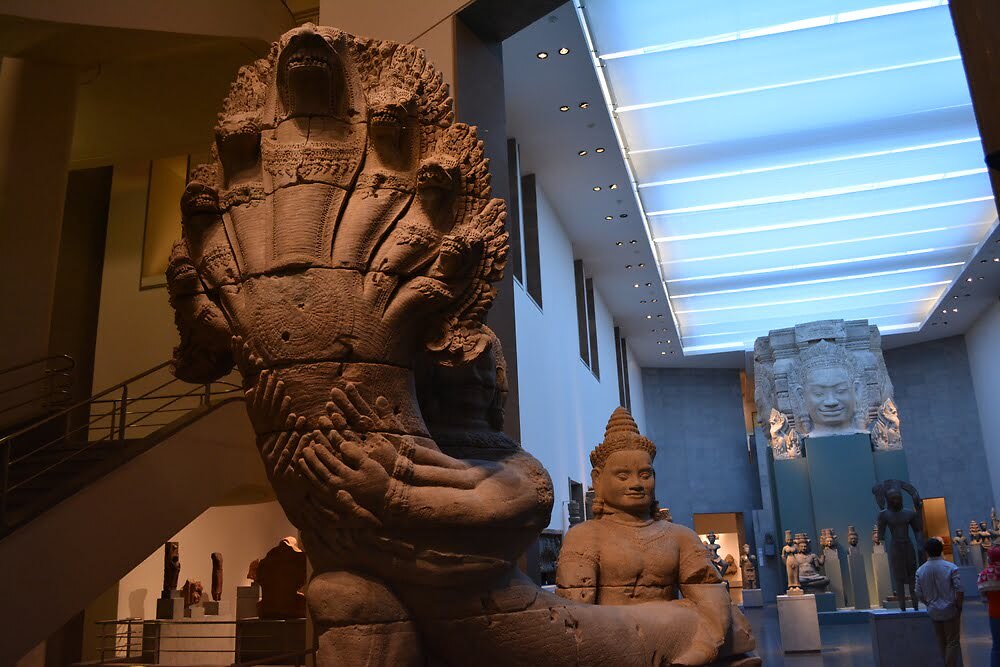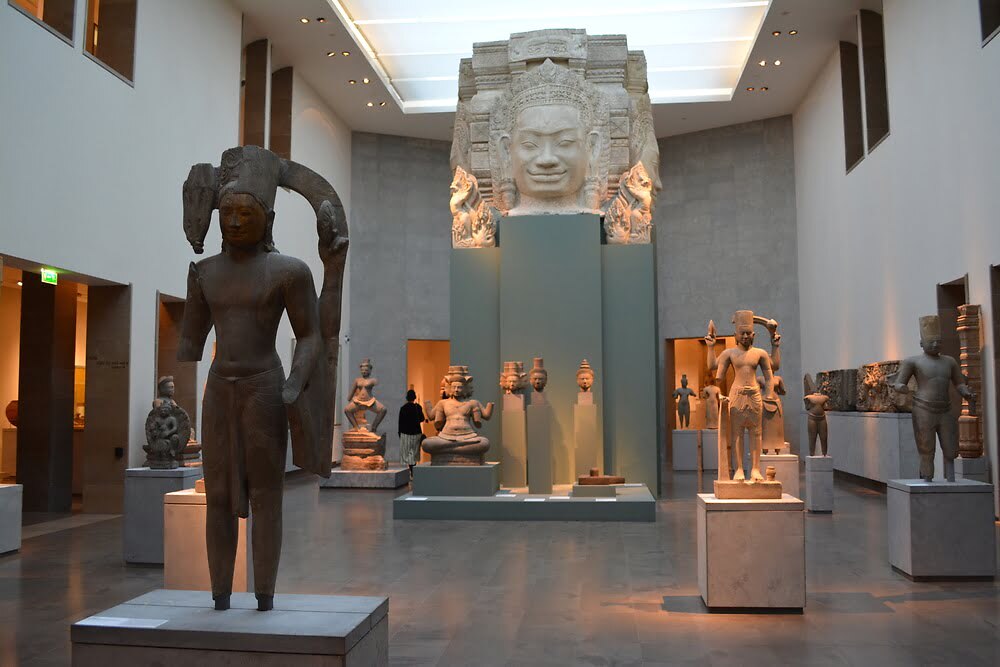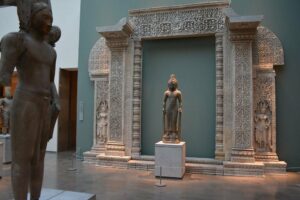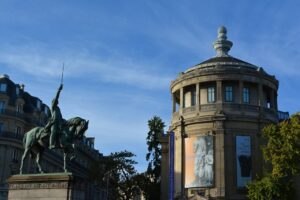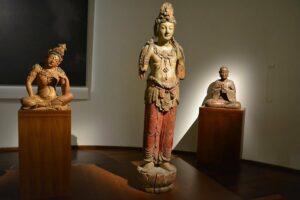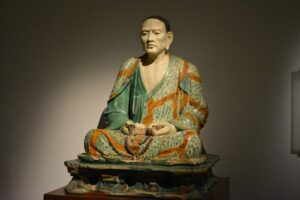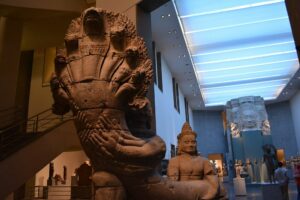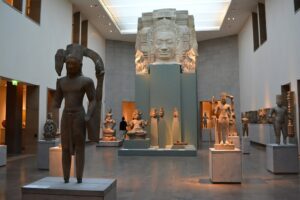- Paris Hotels
- Hotels by Category
- Hotels by Districts
- Champs Elysees Hotel
- Montmartre Hotel
- Saint Germain des Prés Hotel
- Montparnasse Hotel
- Porte de Versailles Hotel
- Republique – North Train Station Hotel
- Place de la Nation Hotel
- Latin Quarter Hotel
- Opera Garnier Hotel
- Marais – Bastille Hotel
- Gare de Lyon Hotel
- Gare Saint-Lazare Hotel
- Hotel Place d’Italie
- Other Hotels
- Hotels by Category
- Districts
- Paris map
- News
- Contact us
Guimet Museum
- Profile
- prev
- next
- prev
- next
-
If the atmosphere and the singular cachet of this place first disconcerts, then enchants our visitors, it is because a visit to the Hotel Heidelbach, a jewel of French architecture, encloses at the same time a Buddhist sanctuary, a Museum ot Fine Arts and a Japanese Garden, a real haven of peace.
Complementing all this are a Bookstore and a remarquable museumstore proposing reproductions and creations of fine wares.
The Hotel Heidelbach, built in 1906 by the banker Samuel Heidelbach, is a refined example of French, turn-of-the-century, Neo-Baroque architecture of which few authentic examples still exist. Purchased by the State in the 1950s, totally restored in 1991, the Hotel Heidelbach now houses the Japanese collections of Emile Guimet (1836-1918) a scholarly industrialist, a great traveler, a connoisseur of fine arts and music and lastly, the founder of the former National Museum of Religions. Outside of Japan, his collections, which include a replica of the famous Mandala of the Toll Temple in Kyoto (839 AD), have no equivalent in the world.
The Collection1- First Floor – The Landing and the Winter Garden
China
Starting of the Visit – Displayed here are 33 major works of Chinese Buddhism which come from the Chinese collections of the Museum or from the oriental collections of the Louvre museum. These master pieces, of a rare aesthetic quality, often dated and very old, will allow the visitor, through the parentage of the images, to follow the transmission of Indian Buddhism of the “Great Path” (Mahayana) that China integrated then handed over to Japan where it spread to all segments of the population after the year 1000.
Japan
First Floor Gallery & Ground Floor Gallery
Most of the works illustrating the Japanese Buddhist Pantheon were purchased by Émile Guimet during his 1876 trip to Japan. The majority of his acquisitions can be dated to the Edo Period (1615-1865) some belong to the very beginning of this period but more numerous are those from the end of the 17th century and from the 18th century. A few pieces are more recent, dating from the middle of 19th century to the beginning of the Meiji Era (starting in 1867). On the contrary, others are very old: regarding the Kamakura Period (1192-1333) let us mention on the first floor, the bronze statue of Seishi (n°24) which in all likelihood comes from Hôryû-ji, then the handsome Bodhisattva (n° 69) and downstairs, the Guardian of the North (n°114).To the Muromachi-Momoyama Period (15th and 16th centuries) can be attributed the two remarkable statues (Ist floor) of the acolytes of Buddha Shakyamuni (n°58 and 59), Fugen seated on the elephant, Monju seated on the lion, the “red” Jizô (n°65), the feminine aspect of Kannon (n°49) -both ca. 1600- also the statue of the “Great Protector of the Requests” (n° 54), which was the favorite divinity of the famous Shogun Toyotomi Hideyoshi (=1597), who lived a few decades before the arrival of the Mayflower in America. (See the catalogue in the bookstore)
Finally downstairs, the monumental statue (n°16) representing Amida, the Buddha of the West (ca. 1600) : the gazing at this Amida converted the famous explorer Alexandra David-Neel (=1969) to devote herself to Buddhism and its diffusion in Western Europe through authoring very popular books on the Himalayan area. This statue – formerly in the Library of the Guimet’s museum- is now installed in the lower gallery on the Ground Floor surrounded by large bay windows that reveal the gushing waterfall, the maples and the bonsai of the Japanese Garden.
The Japanese Garden
Open to the Public, it is a small oasis in the midst of the galleries. Waterfalls, pools, bamboos swaying in the wind combine themselves to offer the visitor a privileged area of nature and a peaceful retreat, inviting meditation. The garden, inspired by an enduring Japanese tradition, changes with the weather and the seasons, connecting past and present. This garden, which was made possible through the patronage of the Rémy-Martin company, is a manifestation of one of Émile Guimet’s dreams which he could not realize during his lifetime.
Location : 6 Place d’Iéna 75116 Paris
Phone : 01 56 52 53 00
How to get there :
- Metro lines 6 et 9: Boissière, Trocadéro, Iéna
- RER C : Pont-de-l’Alma
- Bus : 22, 30, 32, 63, 82
Opening :
- The museum is open every day (except Tuesday) from 10am to 6pm
- Opened everyday exept on Tuesday.
Official website : https://www.guimet.fr
Nearby hotels
-
10 Rue Kepler, 75116 Paris, France
-
7 Rue Magellan, 75008 Paris, France
-
21 Rue de Penthièvre, 75008 Paris, France
-
6 Place d'Iéna, 75116 Paris, France
